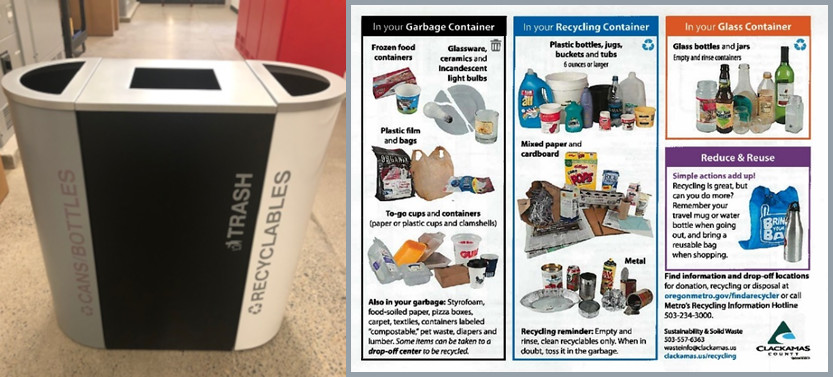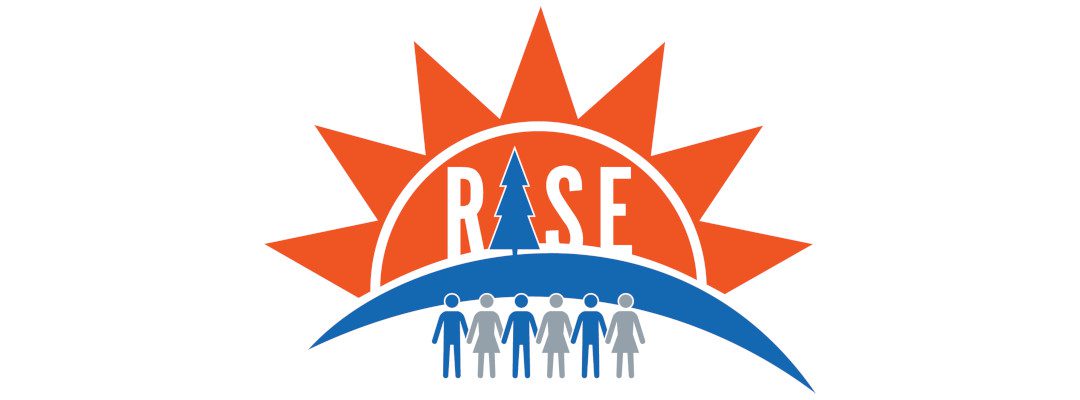Our company core values are the cornerstone of the way we do business at DWFritz. In the spirit of integrity and innovation, a group of employees made our presence in the community and environmental impact a primary focus for 2019. Our corporate social responsibility group, RISE (Responsible Integration, Social & Environmental), represents employees from every department at DWFritz, and with the help of additional resources, this team is making a huge impact in how we do business every day.
Responsible Integration, Social & Envioronmental (RISE): Our corporate social responsibility program
In many ways, 2019 was a year of change for DWFritz. We changed the way we think, the way we procure, the way we consume, and the way we reduce. As with many organizational changes, baby steps, research, and focus groups were used to ensure that changes are adopted throughout the organization. The RISE team’s persistence was the key to achieving many milestones and accomplishments in 2019.
Small Steps to Sustainability
Change comes incrementally, and education is the key to encourage others to tag along for the ride. In addition to providing the organization with regular updates about the RISE team’s progress, employees were offered several opportunities to learn about recycling and sustainability.
As an example, we called on our partners at Clackamas County who provided a lunch ‘n learn for employees to learn what they can recycle and best practices, alternative products, and preventing excess waste. The County also provided signage and offered free recycling bins to make the transition as seamless as possible for employees. To further promote our recycling program, we opened our manufacturing floor recycling center to employees for personal use, as well.
In addition to the general recycling program, our facilities manager worked with the County to develop a robust office recycling program that includes batteries, aluminum, polystyrene, and cardboard. A major benefit of the County resources is building new partnerships with other organizations, such as Agilyx, which safely processes our polystyrene. In 2020, we will engage our supply chain team to work with our suppliers on alternative packaging options, helping us further reduce the use of polystyrene products.
A few of our manufacturing and engineering team members let the RISE team know that we were discarding hundreds of small inventory bags. For years, these bags were single-use, but did they have to be? The RISE committee approached the materials and manufacturing team to understand the process and identify a new system to reuse these bags as many times as possible. This was an overnight success! Since implementing this simple process change, we have yet to order new bags for circulation.
Inspired by the new Oregon single-use plastic bag ban, we set up a collection site where all employees can dispose of their plastics bags. Bags are collected and properly disposed of through external vendors.
Another small, but important, 2019 initiative came after a RISE committee member noted the number of bottles and cans that were being thrown away or recycled every night. The latter was the preferred scenario, and this presented another opportunity–Bottle Drop. Now, we have made Bottle Drop bins available for employees, who can choose whether they would like their 10-cent bottle return to go towards our community garden (a work in progress) or the Robotics Clubs sponsored by DWFritz.

Signage helps remind employees which materials go into which section of the centralized containers.
Making a Major Impact
As excited as the RISE team has been towards implementing these changes to impact the community, the team also strived to positively impact the business as well. By pulling data from our utility providers and comparing our month-to-month electricity, water, and gas usage with other local business, our facilities manager discovered that we were operating on two different water meters. By working with the city to update the meters, we achieved higher efficiency and major cost savings.
Reviewing the utility data also inspired the team to look at other best practices. As mentioned previously, we capitalized on the Oregon plastic bag ban by providing a collection site for employees to drop-off their personal bags for proper disposal, but the RISE team took this one step farther. After running some numbers from our janitorial service, we found that if every employee’s garbage can liner is replaced every night for a whole year, then we would be contributing 55,000 liners to the landfills. The RISE team immediately took action to identify how we could improve this practice. The team researched and proposed centralized garbage receptacles. Two focus groups were formed to test the program and it was a major success. Now, nearly the entire organization disposes of waste and recycling in centralized bins.
Energized by our success, the RISE team scoured the facility for other single-use items and found that paper bowls and plastic ware were being provided for breakfast every morning. Working with the central services team, the company shifted to entirely ceramic plates and bowls and silverware only, reducing disposable dishware by 63% and saving hundreds of pounds of waste from ending up in a landfill every year.
Last, but certainly not least, the RISE team organized and hosted an all-company donate and recycle day. Employees could bring an extensive list of items from home to be properly donated, recycled, or destroyed, including light bulbs, appliances, metals, and construction materials. This event was a huge success, but the numbers speak for themselves:
• 274 lbs of batteries
• 431 lbs of scrap steel
• 63 light bulbs
• 3 large tubs of plastic film
• 1 large tub of polystyrene
• 4 pallets of material to Habitat for Humanity
• 2 Gaylors full of e-waste
In our next installment, we look at the social component of the RISE team’s efforts in 2019.

